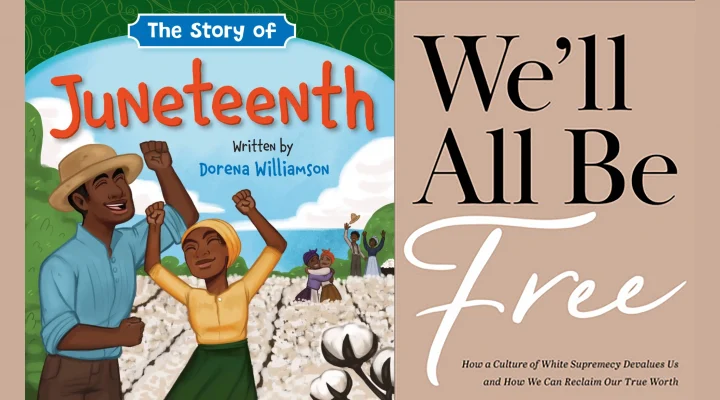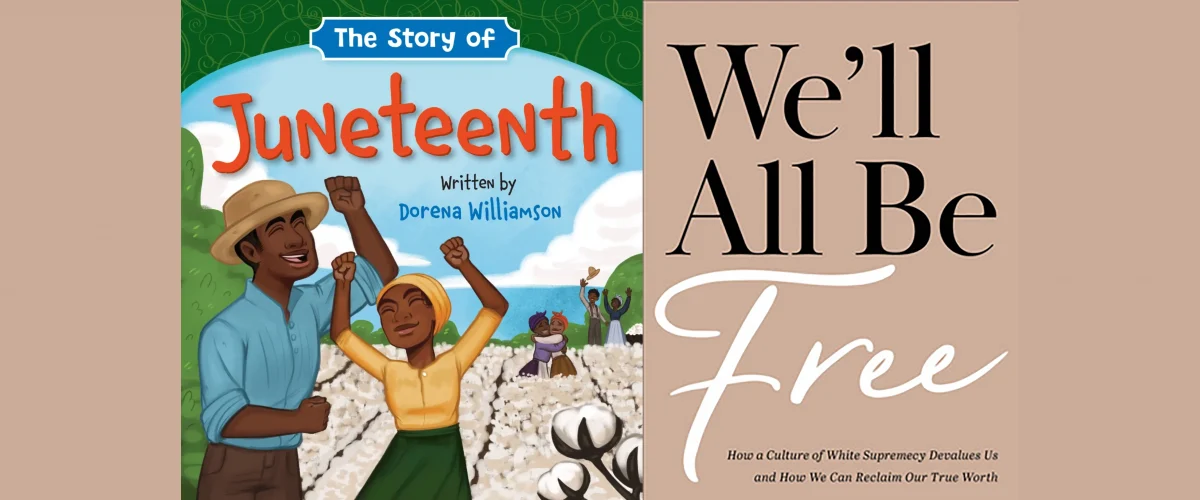When Dorena Williamson was asked to write a children’s book on the importance of Juneteenth, she knew it was a huge task to pull off, not just because of the topic but because of the timeline.
This year, our country celebrates Juneteenth as a federal holiday for only the third time. So Williamson realized many kids need to understand the history of this special day.

Dorena Williamson
“I prayed about it, and I felt like it was one of those things that dropped in my lap, and that I could not say no to because it was an opportunity to be a part of something historic,” she said. “I first researched and did not find a lot of material for children about Juneteenth, and I didn’t find board books that introduced the subject. I thought, you know, this is a landmark opportunity I have to say yes to.
“I enjoyed learning for myself because if I’m being honest, I was not raised knowing and learning the history of Juneteenth and, you know, some of our white brothers and sisters expressed surprise because they assumed Black people grew up learning about it, celebrating it.”
As a result of her research, Williamson understood the book was needed not just for the kids who hopefully will read it, but also for her own soul and enrichment. And she realized many of the parents who would be reading the book to their kids might not know anything about Juneteenth either.
“You have to go back to why Freedom News was delayed for over two years to the enslaved in Texas.”
“It’s not just a lot of white folks who are kind of unaware,” she said. “Juneteenth was largely a Texas-focused celebration. It’s just been in the more recent years that it’s really broadened to being a national, and a worldwide celebration. To tell the story of Juneteenth, you cannot just say this is a holiday, and this is why we celebrate it. You have to go back to why Freedom News was delayed for over two years to the enslaved in Texas.”
The result is The Story of Juneteenth, a 24-page board book.
Telling that story to kids is important, but making sure the illustrations fit what kids are reading was equally important to her. Williamson knows some people are trying to ban books like hers.
“They want it to be excluded because it does not make white people at large look good when you remind children of the truth of history,” she explained. “I believe it’s critically important, especially for us as believers, because we understand the Bible reminds us of the fact that we were slaves to sin and the price of freedom was paid for us by Christ. And so if anyone should understand the importance of freedom, the value of not being enslaved to sin, it should be people who call on Jesus who have received the free gift of salvation.”
The idea of freedom through Christ also is found in Caroline Sumlin’s new book for adults, We’ll All Be Free. Sumlin seeks to help people find freedom in Christ by finding their voice in a culture of supremacy.
It’s important to help her audience understand that racism has been our primal wound in this country, she said, and that for our country to truly understand and celebrate freedom, we have to look for healing from our past.
“Understanding that healing is a journey. It’s not a destination.”
“Looking at Generation Z and Generation Alpha gives hope. It definitely gives hope. One of the things I say in the book is that understanding that healing is a journey. It’s not a destination. So, while I believe we will always be on the journey of healing and get closer and closer while we’re here on earth, I don’t believe we’ll ever be fully, fully healed on this side of heaven. We have to understand we’re always going to have battle scars from these wounds. The scars themselves are not going to go away, but when we get to heaven, those scars do get to go away.”

Caroline Sumlin
Juneteenth should be a time to reflect and acknowledge our scars, which will bring about healing, she said. “We must feel that pain in order to release it, in order to medicate it, in order to figure out what we even need to heal from. I do think Juneteenth is a time to lament and rejoice.”
Although there is still much to be done, both Williamson and Sumlin believe Juneteenth offers both renewal and regeneration.
Williamson explained: “We need that reminder that God’s glory does not rest more on some people than others, but rests on all people across the world. This is what God tells us in his word.”
Related articles:
Opal Lee may be the ‘Grandmother of Juneteenth,’ but she’s not done working for justice yet
Juneteenth emancipation then and now | Opinion by Bill Leonard
Juneteenth and the promise of freedom | Opinion by Darrell Hamilton II
One year later, awareness of Juneteenth is growing
Juneteenth should remind us of all the things we don’t know | Opinion by Mark Wingfield
Don’t keep sweet: Why white Christians need to celebrate Juneteenth | Opinion by Erica Whitaker


